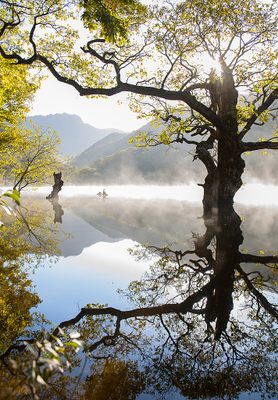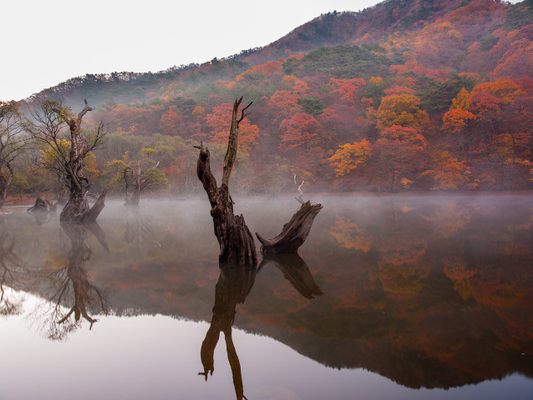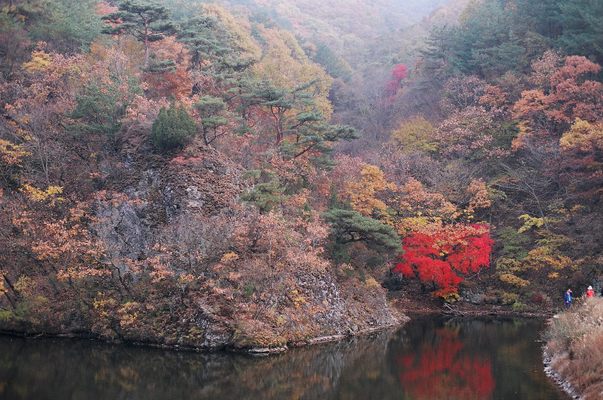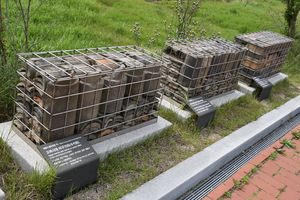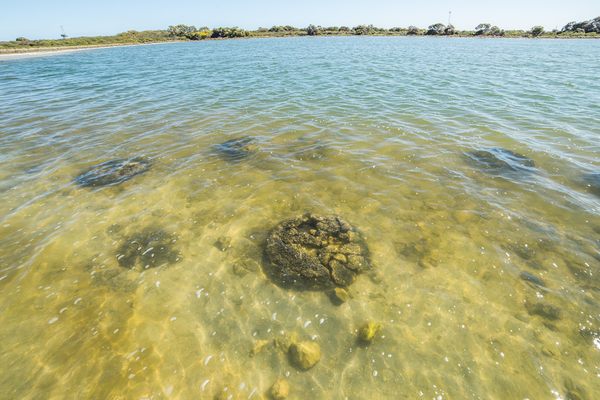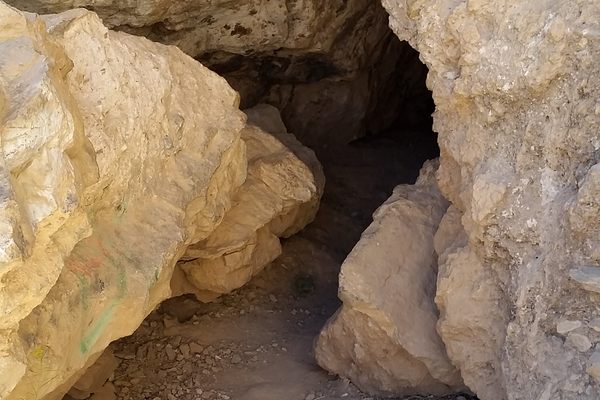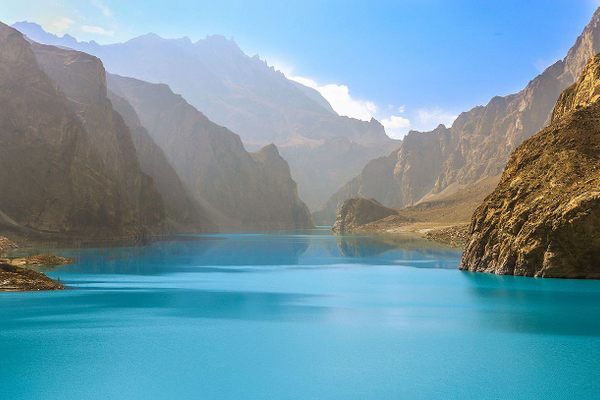About
Tucked among the trees in the forest outside of Cheongsong, South Korea, this small body of water has drawn visitors from all over the world. Jusanji Pond is an artificial pond created in 1720 in a forested area that in 1976 became the Juwangsan National Park.
The pond was built to serve as a reservoir that could provide a steady supply of fresh water to the lower agricultural land. It's fairly diminutive, by most standards. When full, Jusanji Pond measures 100 meters (328 feet) in length and 50 meters (164 feet) in width, with a maximum depth of eight meters (26 feet).
The pond’s real claim to fame is the beauty with which the nearby centennial trees have encroached on its banks. Centuries of growth have resulted in a mesmerizing interplay of water and branches, and the fog that often envelops the pond when the weather is cold only adds to its charm.
The mystic aura of Jusanji Pond did not escape Korean director Kim Ki-duk, who used it as a central element in the 2003 movie Spring, Summer, Fall, Winter... and Spring. The plot of the movie revolves around the life of Buddhist monk that grew up at the floating temple. Long sequences of Jusanji Pond in different seasons are used to illustrate the stages in the monk’s life. A floating temple was built for the movie, but it was eventually dismantled to retain the natural atmosphere of the place.
The best time to visit Jusanji Pond is spring and fall, when the trees in bloom and the dying leaves respectively are perfectly mirrored on the placid water of the pond. However, visiting the pond in winter also has its perks, with the fog, silhouette of the trees and frozen waters bestowing on the pond a spectral ambiance. Although it is never dry, the pond reaches its lowest levels of water in the summer, the least favorable season for a visit.
Related Tags
Community Contributors
Added By
Published
May 13, 2021

